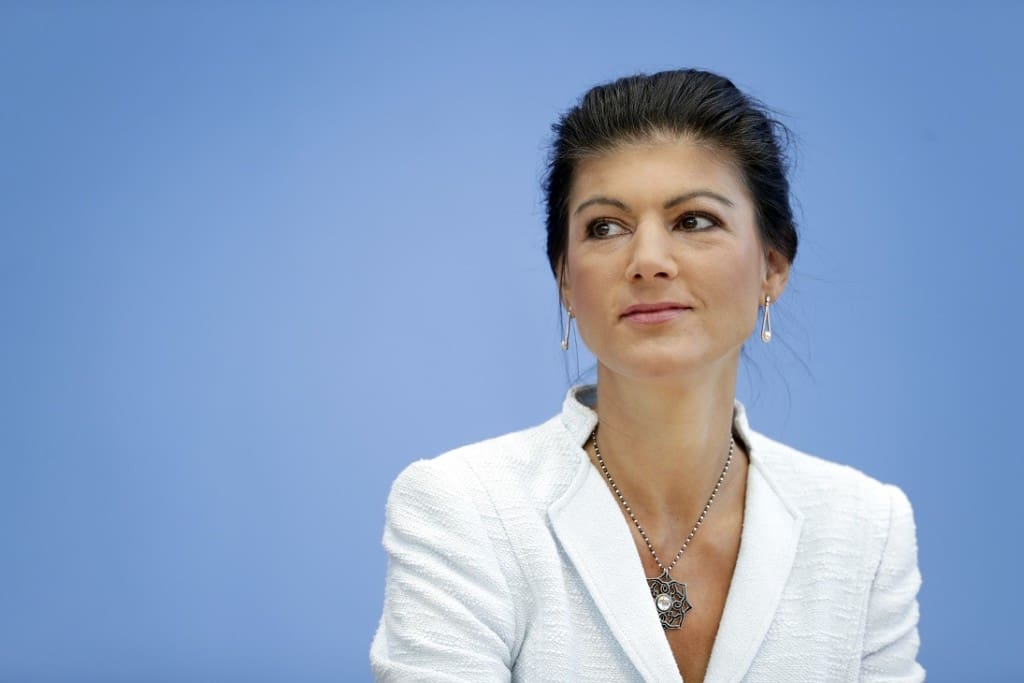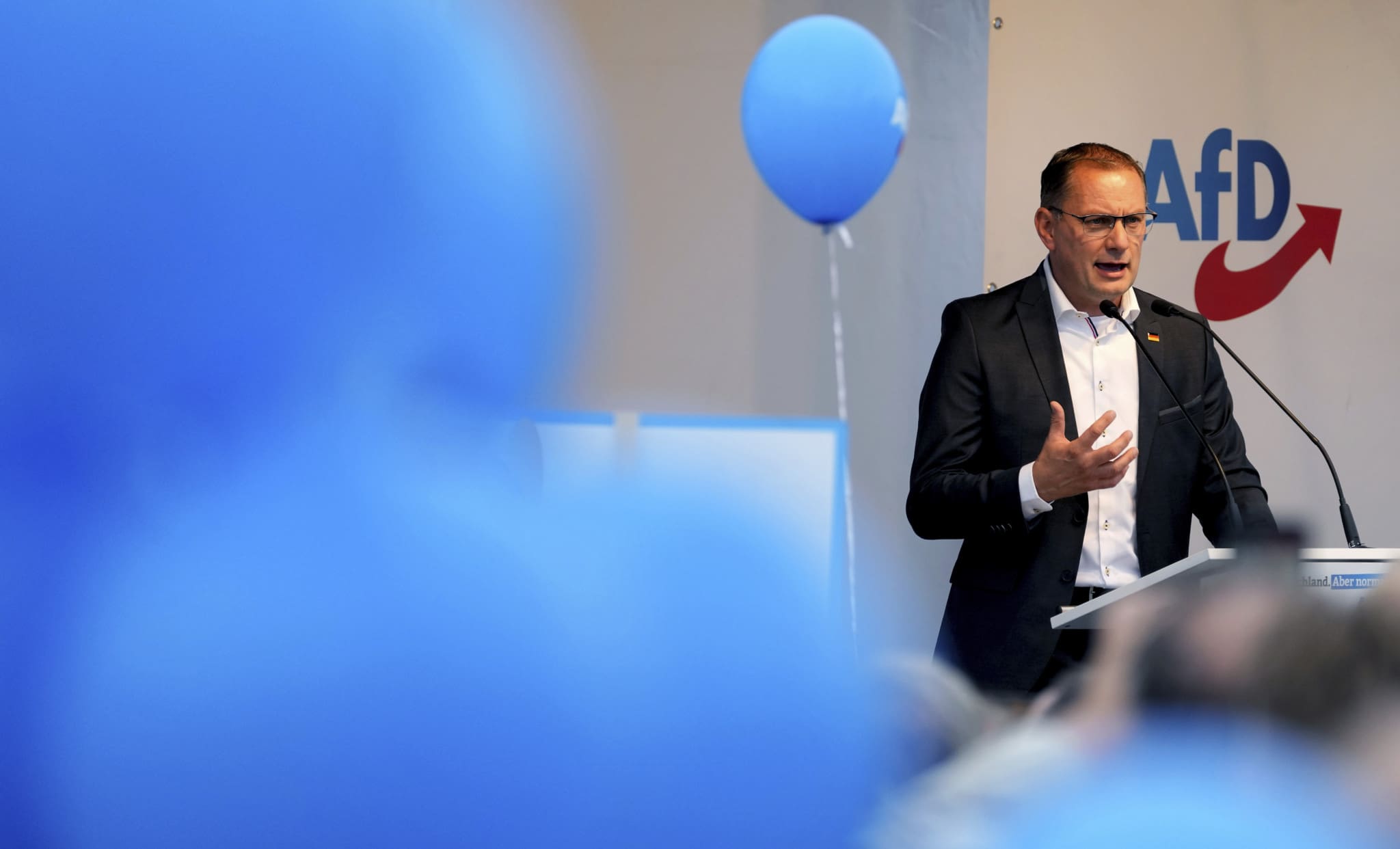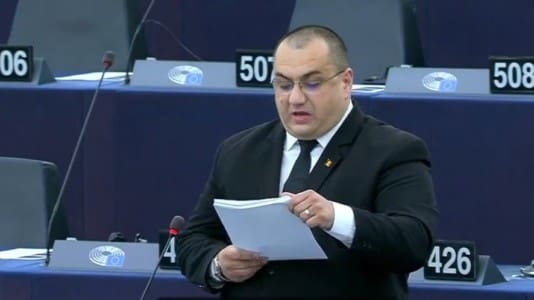Calls to ban the Alternative for Deutschland (AfD) party may grow even more desperate from the country’s left-liberal parties after the Insa opinion poll reported the party has scored its best result in three years, jumping another 0.5 percentage point to 15.5 percent.
The conservative German party is only three points behind the Greens (18.5 percent), who lost half a point, while SPD reached only a little more with an unchanged 19.5 percent in the survey commissioned by the Bild newspaper.
[pp id=51729]
As the anti-immigration AfD inches closer to the establishment ruling parties in the polls, politicians from these same parties have increasingly called for a complete ban on AfD, calling into question Germany’s claim to being a democratic nation.
AfD still trails the Christian Democratic Union (CDU), which remains the strongest party with 27.5 percent. Members of CDU have also called for a ban against AfD in the past.
The Insa poll shows that the Liberals (FDP) came in at 7.5 percent, less than half of AfD’s result. In the general election earlier this year, the Liberals were 4.5 points ahead of AfD.
Although the traffic light coalition parties only achieved 45.5 percent, they would secure another parliamentary majority, as the “other parties” account for just 7 percent and the Left for only 4.5 percent. Germany has a 5-percent threshold required for a party to enter parliament.
A coalition between AfD, CDU, and FDP would theoretically be possible, but all parties have long ruled out cooperating with AfD.
AfD’s stance on ending sanctions against Russia and opening the Nord Stream 2 pipeline have fueled the party’s rise in popularity, especially with Germans increasingly facing a dire financial future and businesses warning of mass bankruptcies. AfD argues that sanctions against Russia are punishing Germans more than they are hurting Russia, a message that is resonating with the public.
At the same time, Germany is overwhelmed with immigration more than ever before, resulting in 12 out of 16 federal states banning the intake of more refugees due to strains on social services, schools, and housing. As a result, AfD’s strong stance against immigration may also be contributing to its continued growth in the polls.
Polling also points to other potentially seismic shifts in the German electoral landscape. The Left’s most prominent and most controversial politician, Sahra Wagenknecht, is reaching new heights of popularity. Despite the Left party only scoring 4.5 percent in the polls, Wagenknecht is now the second most popular politician in Germany.

What explains the discrepancy? For one, although Wagenknecht is widely popular with voters of the Left party, the leaders and activist class within the party who are more “woke,” pro-migration, and anti-Russia remain opposed to her. Wagenknecht has made her stance against immigration clear in the past, and chastised the party’s rich activist class as being completely disconnected from the working class. Her message has resonated with large swaths of the German population, but splits in her party have led to efforts to kick her out, and there’s speculation she may leave and form a new rival party.
Notably, she has also been accused of being pro-Russia for her stance blaming NATO for being largely responsible for provoking Russia into attacking Ukraine, and her strong advocacy to end sanctions and restore the Nord Stream pipelines to save Germany from economic catastrophe. Her surge in popularity may underline that German sentiments in favor of supporting Ukraine at any cost are reaching their limit.
[pp id=6415]
Wagenknecht is the most popular politician among left-wing voters, but even among AfD supporters, she has moved into second place between party leaders Alice Weidel and Tino Chrupalla.
After Bavaria’s Prime Minister Markus Söder (CSU), Wagenknecht is now overall the second most popular politician. Jumping up from sixth place, she overtook Foreign Minister Annalena Baerbock (Greens), Prime Minister of North Rhine-Westphalia Hendrik Wüst (CDU), Agriculture Minister Cem Özdemir (Greens), and SPD leader Lars Klingbeil.
Chancellor Olaf Scholz (SPD) swapped places with Economics Minister Robert Habeck (Greens), whose popularity continues to slide, and they are now in seventh and eighth place, respectively.





